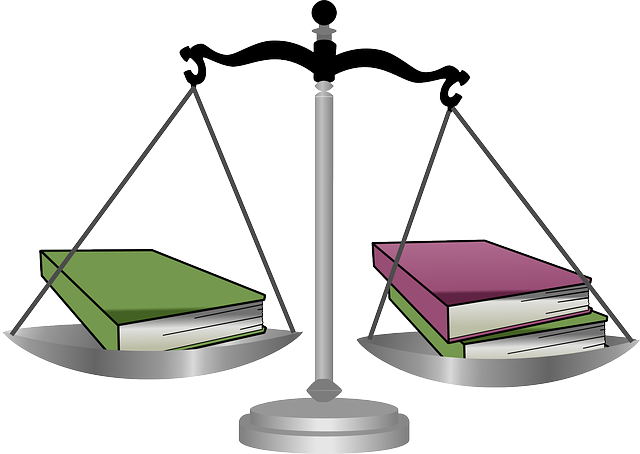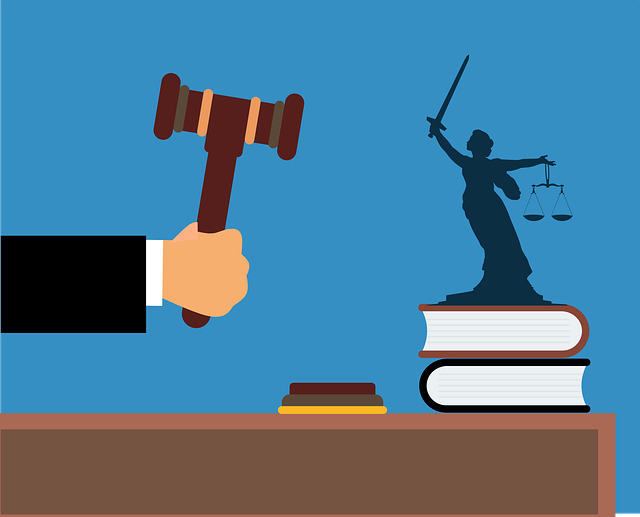
Category: Thornton Colorado Truck Accident Lawyer
Thornton Colorado Truck Accident Lawyer: Navigating the Legal Complexities
Introduction
In the fast-paced world of transportation logistics, where massive trucks traverse highways daily, ensuring safety and holding accountable those who cause accidents is paramount. This is where the role of a Thornton Colorado Truck Accident Lawyer becomes critical, offering expertise and advocacy for individuals injured or affected by truck-related collisions. This comprehensive article aims to dissect the multifaceted aspects of this legal specialization, exploring its history, global impact, economic implications, technological integrations, regulatory framework, challenges, and future prospects. By delving into these realms, we aim to provide a holistic understanding of how Thornton Colorado Truck Accident Lawyers play a vital role in shaping safer transportation systems.
Understanding Thornton Colorado Truck Accident Lawyer: A Specialization in Focus
Definition and Core Components
A Thornton Colorado Truck Accident Lawyer is a legal professional specializing in representing victims involved in truck accidents within the jurisdiction of Thornton, Colorado. This specialization encompasses a deep understanding of state and federal laws governing commercial trucking, as well as the intricate rules and regulations set by transport authorities. The core responsibilities include:
- Legal Research: Thoroughly investigating and analyzing relevant laws, regulations, and case precedents to build a robust legal strategy.
- Client Consultation: Meeting with clients to understand their experiences, gather evidence, and provide guidance on potential legal avenues.
- Negotiation and Litigation: Engaging in settlement negotiations with insurance companies or trucking firms to secure fair compensation for clients. Alternatively, they may represent clients in court to argue their case before a judge or jury.
- Expert Testimony: Collaborating with industry experts to provide insights during legal proceedings, enhancing the credibility of the client’s case.
Historical Context and Evolution
The practice of Truck Accident Law has evolved significantly over the past few decades, driven by increasing truck traffic and growing public awareness of safety concerns. In the early 1900s, trucking was a relatively niche area of law, with simple regulations focused primarily on licensing and weight restrictions. However, as trucking became a cornerstone of the economy, particularly post-World War II, the need for specialized legal services grew.
The 1970s and 1980s saw major reforms in trucking regulations, including the establishment of the Federal Motor Carrier Safety Administration (FMCSA) in the US, which set standards for driver qualifications, vehicle maintenance, and hours of service. These regulatory changes prompted a corresponding need for legal professionals adept at navigating these new complexities.
Significance and Place within the Legal Landscape
Thornton Colorado Truck Accident Lawyers are essential in several ways:
- Advocacy for Victims: They ensure that individuals injured in truck accidents receive fair compensation for medical expenses, lost wages, and pain and suffering.
- Public Safety: By holding trucking companies and drivers accountable, these lawyers contribute to improved safety standards, potentially preventing future accidents.
- Legal Expertise: They stay abreast of changing laws and regulations, providing clients with the best possible legal representation.
- Negotiation Power: Their expertise enables them to secure settlements that might be difficult for individuals to achieve without legal assistance.
Global Impact and Trends: A Worldwide Perspective
International Influence
The impact of Thornton Colorado Truck Accident Law extends far beyond Thornton’s borders, as international trade and transportation networks create a global interdependence. Many countries have adopted similar regulatory frameworks inspired by US standards, particularly through the International Commercial Vehicle (ICV) Regulations. These regulations set minimum safety requirements for vehicles, drivers, and operations, fostering a level of uniformity that aids in cross-border legal proceedings.
Global Trends Shaping the Field
- Technology Integration: The global trend towards digitization has led to advanced tracking systems, telematics, and electronic logging devices (ELDs), providing real-time data for accident reconstruction. This technological evolution offers both challenges and opportunities for lawyers, requiring them to adapt their strategies.
- Rising E-Commerce: The boom in online retail has increased the volume of goods transported by truck, leading to more complex liability issues and a higher demand for specialized legal services.
- Cross-Border Disputes: With global supply chains becoming more intricate, international disputes over accidents involving foreign vehicles are on the rise, requiring lawyers to navigate diverse legal systems.
- Safety Standard Harmonization: Efforts to harmonize safety standards globally, such as through the United Nations (UN) and the World Trade Organization (WTO), impact legal practices by setting consistent expectations for compliance.
Economic Considerations: The Financial Aspects
Market Dynamics
The Truck Accident Law sector is influenced by various economic factors:
- Insurance Premiums: Trucking companies’ insurance costs play a significant role in their operational expenses, impacting the potential settlements they are willing to offer.
- Fuel Costs and Regulations: Fluctuations in fuel prices and regulatory changes affecting trucking companies’ profitability can influence their financial negotiating positions.
- Economic Recessions: During economic downturns, there may be a decrease in truck-related accidents due to reduced freight volumes, potentially leading to fewer legal cases.
Impact on the Trucking Industry and Employment
Thornton Colorado Truck Accident Lawyers contribute to the overall financial health of the trucking industry by:
- Enforcing Safety Standards: Ensuring compliance with safety regulations reduces costly accidents and associated liabilities.
- Promoting Fair Compensation: Holding companies accountable for negligence leads to fairer compensation practices, benefiting drivers and carriers alike.
- Creating Job Security: Safer working conditions and reduced accidents contribute to a more stable trucking industry, enhancing job security for drivers.
Technological Integrations: Digital Age Advancements
Impact on Legal Practice
- Case Management Software: Lawyers use case management tools to organize client information, track deadlines, and manage documents efficiently.
- Legal Research Databases: Access to specialized databases enables lawyers to conduct thorough legal research, staying updated on relevant precedents and regulations.
- Video Conferencing: This technology facilitates remote client consultations, depositions, and court appearances, especially in cases involving out-of-state clients or witnesses.
- Forensic Analysis Tools: Advanced software for accident reconstruction and data analysis helps lawyers present compelling evidence in court.
Emerging Technologies on the Horizon
- Autonomous Vehicles: The development of self-driving trucks raises unique legal questions regarding liability, insurance, and regulatory frameworks. Thornton Colorado Truck Accident Lawyers will need to adapt their practices to address these emerging issues.
- Blockchain Technology: Blockchain’s potential application in supply chain management could provide an immutable record of transactions, potentially revolutionizing accident investigation and proof of liability.
- Artificial Intelligence (AI): AI-powered predictive analytics might enable lawyers to anticipate potential legal challenges and develop proactive strategies.
Regulatory Framework: Rules and Oversight
Federal and State Regulations
- FMCSA: At the federal level, the FMCSA sets standards for driver qualifications, vehicle safety, and hours of service. It also enforces compliance through inspections and investigations.
- Colorado Department of Transportation (CDOT): The CDOT oversees state-specific regulations, including commercial vehicle registration, weight restrictions, and road safety initiatives.
- Local Ordinances: Thornton’s local laws may further regulate trucking operations within the city limits, covering areas like parking restrictions and noise pollution.
Enforcement and Compliance
Enforcement of these regulations involves:
- Inspections: Regular inspections of trucks and driver records ensure compliance with safety standards.
- Civil Fines and Penalties: Non-compliance can result in substantial fines and penalties for trucking companies.
- Criminal Prosecutions: In severe cases of negligence or reckless driving, individuals may face criminal charges, leading to potential jail time.
Challenges Faced by Thornton Colorado Truck Accident Lawyers
Complex Liability Issues
Determining liability in truck accidents can be intricate due to various factors:
- Multiple Defendants: Often, accidents involve the driver, trucking company, cargo owners, and even manufacturing defects in vehicles.
- Third-Party Negligence: Other parties, such as maintenance crews or weather conditions, may contribute to accidents, complicating legal arguments.
- Statute of Limitations: Strict time limits on filing lawsuits require lawyers to act swiftly, adding pressure to their caseloads.
Balancing Public Interest and Industry Interests
Thornton Colorado Truck Accident Lawyers must navigate the delicate balance between advocating for clients and representing the interests of the trucking industry:
- Industry Lobbying: Powerful trucking companies may lobby for regulatory changes that could hinder legal cases, requiring lawyers to stay informed and engaged in policy discussions.
- Public Perception: Negative public sentiment towards truckers due to stereotypes or media portrayal can impact client perceptions, influencing settlement negotiations.
- Regulatory Changes: Rapidly changing regulations demand constant adaptation, adding complexity to legal strategies.
Future Prospects: Looking Ahead
Emerging Legal Challenges
- Autonomous Vehicles and Liability: As self-driving trucks become more prevalent, establishing liability in accidents involving these vehicles will be a significant challenge.
- E-Commerce Logistics: The rise of e-commerce presents new legal issues regarding delivery time expectations, driver fatigue, and workplace injuries.
- International Dispute Resolution: With global trade expanding, cross-border disputes over accidents will require lawyers to navigate diverse legal cultures and jurisdictions.
Technology’s Role in Legal Practice
- Advanced Analytics: AI and machine learning could enhance case assessment, predictive modeling, and client profiling, streamlining legal processes.
- Blockchain for Evidence: Blockchain technology might provide an immutable record of evidence, ensuring the integrity of legal documentation.
- Virtual Reality (VR) Simulations: VR could be used to recreate accidents, providing a more immersive understanding of events for both lawyers and juries.
Professional Development for Lawyers
- Specialization: As the industry evolves, Thornton Colorado Truck Accident Lawyers should consider specializing in specific areas, such as autonomous vehicle law or e-commerce logistics.
- Multidisciplinary Collaboration: Teaming up with experts from diverse fields (e.g., engineering, computer science) can lead to more innovative solutions for complex cases.
- Continuous Education: Staying abreast of industry trends, regulatory changes, and emerging technologies will be crucial for success in this field.









